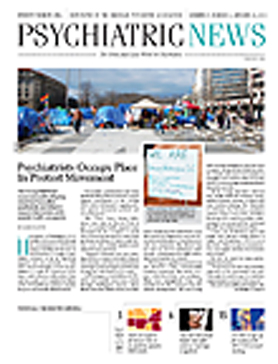As we begin a new year, I thought it might be interesting to pause and reflect on the year that has just ended, putting ourselves in the context of our country and our world. On December 31, 2011, I checked out the blog listing of its viewers’ “top 10 stories of the year.” Here they are:
U.S. commandos kill Osama bin Laden
Japan suffers earthquake, tsunami, nuclear crisis
Arab Spring spreads; regimes fall in Egypt, Libya
Rep. Gabrielle Giffords shot at public event
Occupy Wall Street movement spreads from New York City
Deadly tornadoes usher in year of severe weather
U.S. unemployment remains at staggering 9 percent
Prince William marries Kate Middleton
Of course, viewers select their favorites from a menu served up by the media—in this case by CNN; nevertheless, eight of the 10 top stories reflect violence, unrest, disasters, unemployment, and a precarious economy.
It’s not news to any of us that this has been a year with high-stress highlights (and many more we could add), so the events of the year probably reflect a higher than usual set point of stress for us all. Considering the year from the vantage point of a biopsychosocial model of psychopathology, we have been traveling over some pretty rough psychosocial terrain in 2011, intensifying worry and anxiety and taxing our individual and collective resources more than ever. And we are not out of the woods, not by a long shot.
I could itemize how these stresses manifest themselves in our individual professional lives, in APA itself, and most importantly in the lives of our patients and their families, but I think we have all thought about that a lot, so I’ll just underscore the reality and validity of the heightened burdens we have shared. What I would like to emphasize, however, is what resides within so many of us—the resilience, capacity to cope, and power of hope that so often trump the adversities that come our way. While we sustain our efforts to deepen our understanding of the pathophysiology and etiology of psychiatric illness (efforts that are producing huge dividends), we are “waking up” (or perhaps returning) to a person-centered, health-promoting framework of medicine. In my book, a recovery perspective does not deny the reality of illness nor does it insist on “cure” as the only acceptable outcome. Rather, it endorses the importance of evidence-based treatment combined with efforts to harness each patient’s strengths and talents, to minimize impairment in functioning, and to maximize quality of life.
So I thought I’d close with another “highlights of 2011” list that is very different from the CNN list above—the top six papers published in the
American Journal of Psychiatry in 2011, as selected by the editor in chief and the deputy editors of the journal. Many of you will have seen this in the December 2011 issue (
http://ajp.psychiatryonline.org/article.aspx?articleid=181056), but I thought it fitting to include a condensed version here.
Genetic personalized medicine for alcoholism—“one of the first serious attempts to test a personalized genomic strategy for psychiatric illness.”
Treatment with a novel mechanism of action—“the study … offers the much-needed hope that pathophysiologically based pharmacological interventions for psychiatric illnesses, treatments with truly novel mechanisms of action, may be on the horizon.”
Past as prologue—“about the impact of powerful early experiences on later character, and the ineffectiveness of attempts to modify the latter,” from writings of Sir Richard Steele about 300 years ago.
New view of autism spectrum disorders—a study “focused on South Korea, a country home to no prior community-based studies of autism prevalence …, demonstrating relatively high rates of autism, much higher than the field had been led to believe” and one contributing to “the reality that autism affects the lives of all of us.”
Refined design approaches for lifespan studies—an article that “provides a compelling argument for rethinking the way we design longitudinal research, … absolutely essential to understand the course of psychiatric diseases from their prodrome to late-life expression, particularly in view of rapid changes in our environment.”
Real-time monitoring by patients— a “topic of great importance but often overlooked, namely, the comorbidity of drug abuse with schizophrenia…[t]he results showed that (1) sad mood and psychosis tend to provoke drug use, (2) baseline anxiety is a risk factor for continued alcohol use, and (3) any drug use tends to result in increased anxiety and psychosis.”
I believe that this list of favorites, one of many that could be compiled, weighs heavily on the good-news side of 2011, and I’m not sure whether the pointer on the scale would point to the good news or the bad news side if there were a way to add it all up. But for sure, though we had a lot to cope with in 2011, there was plenty of progress. Let’s hope that at the end of next year, the reading on the 2012 stress barometer will drop. Let me wish each and every one of you a very happy and healthy new year!


